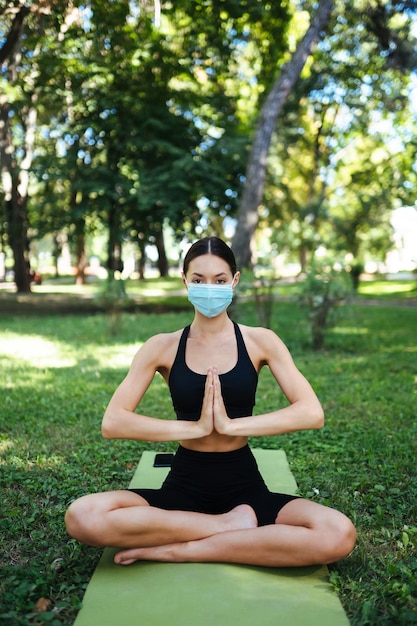
In today’s fast-paced world, many of us are grappling with stress, anxiety, and a yearning for more calm. A lot of people turn to yoga for relief, but sometimes, we just don’t have the time to hit the mat. Whether you’re about to go into an important meeting, stuck in traffic, or exhausted from a busy day, the key to finding calm lies in your breath.
Your breath can significantly impact your emotions and help control your nervous system. By focusing on your breath, you can lower your heart rate, slow down your breathing, and start to feel more grounded and peaceful.
Whenever you start to feel overwhelmed, turn your attention to your breath. This practice, called Breath Awareness, is straightforward. Simply focus on your breath and notice how it moves through your body. This habit can be a powerful tool against anxiety. Instead of spiraling, you can use your breath to change how you feel.
Wellness expert and Philosophie Superfoods founder Sophie Jaffe believes that staying calm benefits not just you but everyone around you. The next time anxiety strikes, try one of these three breathing techniques that you can do anywhere:
1. **Crossed-Arm Breathing Technique:**
This method helps balance your nervous system by stimulating the bundle of nerves in your armpit. Anywhere you are, cross your arms, and take deep breaths. This can be your secret weapon against anxiety during a long meeting, a commute, or any stressful situation.
2. **Sighing Technique:**
When anxiety hits, we often hold our breath or tense up. Instead, try this: slow down your exhalation by sighing deeply through your mouth. Long, slow exhales can help calm your nervous system. This technique is so discreet that you can use it anytime without anyone noticing.
3. **Taco Breathing:**
This technique involves inhaling through an open mouth, which has a cooling and calming effect. If curling your tongue isn’t comfortable, close your teeth together and imagine sipping air through a straw. Feel the cool air over your tongue to help you relax.
**Three-Part Breath (Krama):**
This breathwork draws your attention inward and is especially relaxing. It’s perfect for winding down at the end of a stressful day or before bed. If it’s challenging at first, lie down with a book on your belly and practice breathing so the book moves up with each inhale and down with each exhale. This helps strengthen your diaphragm.
Focusing on your breath is a powerful way to manage anxiety. Yoga is a fantastic form of exercise because of its emphasis on the connection between the body and breath. You can practice breath awareness anytime, anywhere, not just during yoga sessions.
Ancient yogic wisdom provides tools to help us manage modern stress. Learn to incorporate these practices into your life to find more tranquility and joy amidst the chaos. For more techniques and poses, check out my book, “Yoga Life: Habits, Poses, And Breathwork To Channel Joy Amidst The Chaos.”